Search
Search results
Lee (2222 KP) rated The Personal History of David Copperfield (2019) in Movies
Jan 26, 2020
Based on the famous and beloved novel by Charles Dickens, Armando Iannucci (Veep, The Thick of It, The Death of Stalin) brings us this fresh new take on David Copperfield. And it’s like no other Dickens adaptation you’ve ever seen before.
Dev Patel stars as Copperfield, the star and narrator of the story which charts his personal rise from rags to riches during Victorian England. We begin though with Copperfield as an adult, recounting his life story to a small theatre audience as he steps into a painted backdrop behind him on stage, transporting him, and us, to the location of his birth. He enters the family home and continues to narrate from within the scene as his mother struggles with labour. It’s just one of a variety of wonderfully inventive storytelling devices that the movie employs throughout.
While the chaos of childbirth plays out, the first in a long line of star-studded supporting characters arrives, David’s eccentric Aunt Betsey (Tilda Swinton), and we immediately get a glimpse of the kind of humour Iannucci has brought to the story as she sets about upsetting Peggotty, the family housekeeper, and declares that the baby will definitely be a girl.
From there, the storyline is fast paced, weaving between locations as David grows up - from an overturned boat house in Yarmouth, to the chaos of London and the difficulties of working in a bottle factory, and on to the Kent countryside. Along the way we meet yet more big names, including Peter Capaldi, Ben Whishaw, Hugh Laurie, Paul Whitehouse and Benedict Wong. Not to mention countless other recognisable faces.
The Personal History of David Copperfield is a real mixing pot of beautiful visuals, quirky humour and larger than life characters. Realism has been ditched in order to deliver a whimsical tale that is accessible to all ages. Unfortunately though, it just didn’t work for me. Aside from the opening scenes, and the occasional moment later on, the humour didn’t land at all. In fact, I got more laughs from the incredible movie Parasite that I saw just the night before seeing this.
Dev Patel, always impressive and enjoyable in everything he does, is charming as David Copperfield and is definitely the standout. Benedict Wong and Hugh Laurie were both enjoyable, but I felt the others all suffered from a script that just wasn’t strong enough. A beautifully shot movie, bold and bright and vibrant, but instantly forgettable.
Dev Patel stars as Copperfield, the star and narrator of the story which charts his personal rise from rags to riches during Victorian England. We begin though with Copperfield as an adult, recounting his life story to a small theatre audience as he steps into a painted backdrop behind him on stage, transporting him, and us, to the location of his birth. He enters the family home and continues to narrate from within the scene as his mother struggles with labour. It’s just one of a variety of wonderfully inventive storytelling devices that the movie employs throughout.
While the chaos of childbirth plays out, the first in a long line of star-studded supporting characters arrives, David’s eccentric Aunt Betsey (Tilda Swinton), and we immediately get a glimpse of the kind of humour Iannucci has brought to the story as she sets about upsetting Peggotty, the family housekeeper, and declares that the baby will definitely be a girl.
From there, the storyline is fast paced, weaving between locations as David grows up - from an overturned boat house in Yarmouth, to the chaos of London and the difficulties of working in a bottle factory, and on to the Kent countryside. Along the way we meet yet more big names, including Peter Capaldi, Ben Whishaw, Hugh Laurie, Paul Whitehouse and Benedict Wong. Not to mention countless other recognisable faces.
The Personal History of David Copperfield is a real mixing pot of beautiful visuals, quirky humour and larger than life characters. Realism has been ditched in order to deliver a whimsical tale that is accessible to all ages. Unfortunately though, it just didn’t work for me. Aside from the opening scenes, and the occasional moment later on, the humour didn’t land at all. In fact, I got more laughs from the incredible movie Parasite that I saw just the night before seeing this.
Dev Patel, always impressive and enjoyable in everything he does, is charming as David Copperfield and is definitely the standout. Benedict Wong and Hugh Laurie were both enjoyable, but I felt the others all suffered from a script that just wasn’t strong enough. A beautifully shot movie, bold and bright and vibrant, but instantly forgettable.
ClareR (5879 KP) rated Afraid of the Christmas Lights in Books
Dec 1, 2020
I don’t like Christmas books. Usually. I like A Christmas Carol, but I tend not to read many modern Christmas books - unless they’re children’s ones at work, or when I used to read them for my own children when they were little. Which is probably why I liked this so much. Usually in anthologies, there will be a few standout stories that make reading the collection as a whole worthwhile, but I’ve really struggled to single out one or two - I enjoyed them all far too much for that.
Most of the stories are set around Christmas with only a couple of exceptions. That didn’t cause me to like them any less though. The real standouts for me (if I absolutely HAVE to choose!) were: Phoebe Morgan’s Unexpected Present - the gift wrapped so nicely in expensive M&S paper being the main protagonists husband; The Switch by James Delargy had a Stephen King vibe to it (and I should add that it wasn’t because of The Green Mile!); Fresh Meat by Elle Croft gives new meaning to a raw meat diet for your cat; and The Vigilante by Clare Empson was a sad story of a Charles Dickens look-a-like who tries to save victims of crime in the dead of night.
If you need an excuse to buy this, then the proceeds go to ESDAS and Rights of Women, both domestic abuse charities.
Many thanks to The PIgeonhole for serialising this book, and to the authors who joined in. As always, it was a great experience!!
Most of the stories are set around Christmas with only a couple of exceptions. That didn’t cause me to like them any less though. The real standouts for me (if I absolutely HAVE to choose!) were: Phoebe Morgan’s Unexpected Present - the gift wrapped so nicely in expensive M&S paper being the main protagonists husband; The Switch by James Delargy had a Stephen King vibe to it (and I should add that it wasn’t because of The Green Mile!); Fresh Meat by Elle Croft gives new meaning to a raw meat diet for your cat; and The Vigilante by Clare Empson was a sad story of a Charles Dickens look-a-like who tries to save victims of crime in the dead of night.
If you need an excuse to buy this, then the proceeds go to ESDAS and Rights of Women, both domestic abuse charities.
Many thanks to The PIgeonhole for serialising this book, and to the authors who joined in. As always, it was a great experience!!
Gareth von Kallenbach (980 KP) rated The Personal History of David Copperfield (2019) in Movies
Oct 8, 2020
This retelling of Charles Dickens’ David Copperfield takes us from his birth, through his adolescence and adulthood. With the tempo set like a whirling dervish from the moment David (Dev Patel) takes us with him to witness his birth and travel along through his pivotal life moments as he tells his story.
We see his birth where his mother, Clara Copperfield (Morfydd Clark, playing a double role, later as Dora Spenlow) a slight, fantastical woman, and the steadfast housekeeper, Peggotty (Daisy May Cooper) go through the hectic confusion while people mill about, entering and exiting during the process of birth. His Aunt, Betsy (Tilda Swinton) goes about, adding to the calamity insistent that the child of her late brother would be a girl, who would carry her legacy as a Trotwood. Her eccentricity noted immediately as she storms out once learning the child is a boy.
The film progresses, with the same quick tempo, through his brief, idyllic childhood with his mother, then his trip to Yarmouth summering with Peggotty’s family where his imagination begins its bloom in the house that is a boat, by the sea. Once David returns home, he is informed that his mother had married, and his stepfather sends him to London. He is sent to live with Mr. & Mrs. Micawber (Peter Capaldi and Bronagh Gallagher) while he works at the bottle factory.
David’s life goes from famine to feast, bear to bull. However, he has learned resilience through his encounters with people of all classes and situations. As Copperfield makes his way through life, the tempo slows down, and the frenzy subsides.
Yes, it’s a remake, the film is beautifully made, the cast is an incredibly talented international group. Hugh Laurie and Tilda Swinton provide an endearing portrait of eclectic personalities. The film is just a charming and whimsical piece of storytelling.
We see his birth where his mother, Clara Copperfield (Morfydd Clark, playing a double role, later as Dora Spenlow) a slight, fantastical woman, and the steadfast housekeeper, Peggotty (Daisy May Cooper) go through the hectic confusion while people mill about, entering and exiting during the process of birth. His Aunt, Betsy (Tilda Swinton) goes about, adding to the calamity insistent that the child of her late brother would be a girl, who would carry her legacy as a Trotwood. Her eccentricity noted immediately as she storms out once learning the child is a boy.
The film progresses, with the same quick tempo, through his brief, idyllic childhood with his mother, then his trip to Yarmouth summering with Peggotty’s family where his imagination begins its bloom in the house that is a boat, by the sea. Once David returns home, he is informed that his mother had married, and his stepfather sends him to London. He is sent to live with Mr. & Mrs. Micawber (Peter Capaldi and Bronagh Gallagher) while he works at the bottle factory.
David’s life goes from famine to feast, bear to bull. However, he has learned resilience through his encounters with people of all classes and situations. As Copperfield makes his way through life, the tempo slows down, and the frenzy subsides.
Yes, it’s a remake, the film is beautifully made, the cast is an incredibly talented international group. Hugh Laurie and Tilda Swinton provide an endearing portrait of eclectic personalities. The film is just a charming and whimsical piece of storytelling.
Suswatibasu (1703 KP) rated A Life of My Own: A Biographer's Life in Books
Nov 29, 2017
A stunning memoir of a life well lived
A biographer's autobiography makes for fascinating reading. Claire Tomalin attempts to recount the past 84 years of her life to the best of her ability, revealing tragic losses without self-pity, and an enduring spirit.
From an unstable childhood, moving from place to place during the war, with her family living across several countries, to having an unstable marriage. She describes her unusual relationship with her first husband, the renowned journalist Nick Tomalin, who was killed while covering the Yom Kippur war in 1973. His constant fleeting from his family to other women, and abusive behaviour is dark and quite a difficult read. In this instance, Tomalin appears to be stuck in a pattern of staying with her abuser for the sake of her children, a common occurrence in the 1960's. In between the chaos of her life, she loses a baby only one month old and has another who is permanently disabled.
In the same way, the dark, inexplicable suicide of her youngest daughter is laid bare, but out of it comes a change of direction of life dimension as Claire's vocation as a literary biographer floods in to fill the gap. These are, ironically, the most touching and well-written scenes. Through her own writings of women such as Mary Wollstonecraft, and Charles Dickens' affair with Ellen Ternan, we see Tomalin's own creativity and resilience. She copes because she must, and because she can.
The literary name dropping is everywhere because it is woven into the huge patchwork quilt of her long life. The candour of her resentment for the Murdoch empire is matched by the awe and admiration she has for Harold Evans and her mother.
One of the final scenes, in which she describes her father's great grandchildren dancing unknowingly on the bed, where he himself lay dead in his coffin only hours before, encapsulates the spirit of this beautiful book. A truly wonderful look into her life.
From an unstable childhood, moving from place to place during the war, with her family living across several countries, to having an unstable marriage. She describes her unusual relationship with her first husband, the renowned journalist Nick Tomalin, who was killed while covering the Yom Kippur war in 1973. His constant fleeting from his family to other women, and abusive behaviour is dark and quite a difficult read. In this instance, Tomalin appears to be stuck in a pattern of staying with her abuser for the sake of her children, a common occurrence in the 1960's. In between the chaos of her life, she loses a baby only one month old and has another who is permanently disabled.
In the same way, the dark, inexplicable suicide of her youngest daughter is laid bare, but out of it comes a change of direction of life dimension as Claire's vocation as a literary biographer floods in to fill the gap. These are, ironically, the most touching and well-written scenes. Through her own writings of women such as Mary Wollstonecraft, and Charles Dickens' affair with Ellen Ternan, we see Tomalin's own creativity and resilience. She copes because she must, and because she can.
The literary name dropping is everywhere because it is woven into the huge patchwork quilt of her long life. The candour of her resentment for the Murdoch empire is matched by the awe and admiration she has for Harold Evans and her mother.
One of the final scenes, in which she describes her father's great grandchildren dancing unknowingly on the bed, where he himself lay dead in his coffin only hours before, encapsulates the spirit of this beautiful book. A truly wonderful look into her life.
Neon's Nerd Nexus (360 KP) rated The Personal History of David Copperfield (2019) in Movies
Jan 29, 2020
Hard Cake
The personal history of david copperfield really disappointed me especially after such a cracking trailer and while no means a bad film it just really wasnt a film I enjoyed. What I was expecting was a sharply written, quirky yet dry and playful adaptation of the Charles Dickens novel something similar to a yorgos lanthimos film like the favorite for instance but sadly I found this movie to be extreamly dull, uninteresting and severely lacking overall. I wouldnt say its necessarily bad however it all just felt very flat to me. Characters didnt feel believable, humour seemed forced and while david patel burts at the seemes constantly with energy the film around him didnt seem to follow along the same. Very interesting ideas are present here and the emphases is on life almost being like a stage play with people we meet being the characters in it. See everyone in life is unique and has their own distinctive traits/interesting stories and no matter what happenes in our lives neither one is no less meaningless or important than the other. This does come across brilliantly and shows the bad traits of human nature, see everyone is on the path to happiness its just what they do and who they exploit or how much they choose to lie to get there and achieve sucess is diffrent from person to person. Then on a positive side it also shows how we should all realise where we have come from, to be greatful for what we have, to let our creativity flow and to appreciate these characters that enter our lives and inspire/care for us. So heres where I feel conflicted as much as I like these great ideas I feel they they just aren't integrated well enough with the dull story or the forced comedy and sure the film is well made but to watch its just not exciting or that engaging and the characters all became forgettable once off screen just like when watching a sketch show. Failing to keep my intrest constantly made the runtime feel a drag too and by the time I left I struggled to remember much of what had just happened infront of me wishing I'd of just stayed home and watched Perfume or The Favorite instead in the warm. No doubt some will enjoy this but will they be talking about it in a month? I highly doubt it.
Janeeny (200 KP) rated Persuasion in Books
Jun 10, 2019
I’m always a little dubious about certain ‘Classics’. Give me a Charles Dickens or an HG Wells any day of the week and I’m happy. I become a little more dubious around what I call ‘society’ classics, like George Elliot and Jane Austen. It all stems from the time I read Middlemarch and found it to be a 900 page soap opera where NOTHING ACTUALLY HAPPENS!! Although so far I have never been disappointed by a Jane Austen novel, when I have to read a book that essentially revolves around social customs and classes I break out in a cold sweat! .
So I was a little apprehensive when my recommended book for the month from my Penguin Reading challenge was 'Persuasion', but at 249 pages I thought I’d just crack on and get it over with.
I was pleasantly surprised.
Persuasion is about a young woman named Anne Elliot who, previous to the beginning of the story, was betrothed to Naval Officer Frederick Wentworth, but broke it off after being 'persuaded' (see what they did there!) by her family and a close friend that the match was beneath her. It is seven years later and Anne discovers that Wentworth has returned and is, lamentably, involved in her social circle. What follows is a deep exploration of Anne's feelings, thoughts and regrets on the decision she made 7 years ago, and the circumstances that may allow her to make amends.
As I said before I haven’t been disappointed by a Jane Austen novel yet, and this one was no exception. It is essentially a ‘will they wont they’ story that does keep you guessing until the end. Whilst it is a basic storyline it is laced with little dramas that keep you engaged but do not overshadow the main story.
In the introduction in my book it says that Jane Austen once described Anne Elliot as “almost too good for me” I can understand what she means as Anne is a very self-effacing heroin. She puts others thoughts and needs before her own and has an equitable view of the world. Unfortunately in my eyes this does make her far too pliant, and whilst this aspect of her does lend to the back story of why she never married Wentworth seven years ago, when she is insulted and exploited by her family I did find myself wishing she had a little more gumption.
Aside from that I found it a very pleasant societal love story.
So I was a little apprehensive when my recommended book for the month from my Penguin Reading challenge was 'Persuasion', but at 249 pages I thought I’d just crack on and get it over with.
I was pleasantly surprised.
Persuasion is about a young woman named Anne Elliot who, previous to the beginning of the story, was betrothed to Naval Officer Frederick Wentworth, but broke it off after being 'persuaded' (see what they did there!) by her family and a close friend that the match was beneath her. It is seven years later and Anne discovers that Wentworth has returned and is, lamentably, involved in her social circle. What follows is a deep exploration of Anne's feelings, thoughts and regrets on the decision she made 7 years ago, and the circumstances that may allow her to make amends.
As I said before I haven’t been disappointed by a Jane Austen novel yet, and this one was no exception. It is essentially a ‘will they wont they’ story that does keep you guessing until the end. Whilst it is a basic storyline it is laced with little dramas that keep you engaged but do not overshadow the main story.
In the introduction in my book it says that Jane Austen once described Anne Elliot as “almost too good for me” I can understand what she means as Anne is a very self-effacing heroin. She puts others thoughts and needs before her own and has an equitable view of the world. Unfortunately in my eyes this does make her far too pliant, and whilst this aspect of her does lend to the back story of why she never married Wentworth seven years ago, when she is insulted and exploited by her family I did find myself wishing she had a little more gumption.
Aside from that I found it a very pleasant societal love story.
Phil Leader (619 KP) rated The Moonstone in Books
Nov 20, 2019
Of all the books I had to read at school, The Moonstone was probably the only novel I really enjoyed. It is one of the first 'whodunnit' type of books and, remarkably, it manages to hit virtually every requirement of the genre dead centre. If this book was written today, it would still be a classic.
The Moonstone of the title is a rare yellow diamond, stolen from an Indian shrine by colonialists. Thought to be unlucky it is left to the young Rachel Verinder. The night after her 18th birthday party the stone is stolen from her rooms, and the rest of the novel describes how the various players eventually manage to solve the crime.
The plot features twists and turns galore, false trails and red herrings enough for two detective stories. Although the crime involved is 'only' theft rather than the more usual murder it is no less engaging as a story. The characters are well drawn and - social reformer that Collins was - there are strong women and intelligent and interesting servants as well as the landed gentry and philanthropists that inhabit the world of country estates in the mid 19th century that the novel is set in.
One feature of the book is that the story is told from the viewpoint of a number of the players. Firstly (and for nearly half the book) we are introduced to the Verinders and the theft by Gabriel Betteredge, a long serving family retainer who is head of the staff and a sort of de facto butler. Betteredge's narrative is charming and witty, full of dry asides and observations. His habit of picking passages from Robinson Crusoe and applying them to daily life is a quirk that is completely in keeping with his character.
Once the story moves to London, the narrative is taken up by various other characters, sometimes just for a short journal entry, sometimes for extended periods of time. Collins imbues each of these parts with a different voice really skillfully, keeping each character very separate.
The solution to the mystery of who stole the diamond and why is convoluted but also very simple. The whole story is well crafted and fits together really well.
The only negative points really are those imposed on Collins by the time he was writing this. There is an overlong introduction about the diamond in India (it seems that in Victorian novels the long winded introduction is somehow expected by the reader) and the pace slows somewhat in London as there is a lot of description about the character's social standings and financial affairs that just aren't as relevant today.
Nevertheless this really is as good a book as I remember. I certainly rate Collins a lot higher than Charles Dickens as a writer. Definitely recommended for anyone who likes a detective mystery which will keep the reader guessing until the very end.
The Moonstone of the title is a rare yellow diamond, stolen from an Indian shrine by colonialists. Thought to be unlucky it is left to the young Rachel Verinder. The night after her 18th birthday party the stone is stolen from her rooms, and the rest of the novel describes how the various players eventually manage to solve the crime.
The plot features twists and turns galore, false trails and red herrings enough for two detective stories. Although the crime involved is 'only' theft rather than the more usual murder it is no less engaging as a story. The characters are well drawn and - social reformer that Collins was - there are strong women and intelligent and interesting servants as well as the landed gentry and philanthropists that inhabit the world of country estates in the mid 19th century that the novel is set in.
One feature of the book is that the story is told from the viewpoint of a number of the players. Firstly (and for nearly half the book) we are introduced to the Verinders and the theft by Gabriel Betteredge, a long serving family retainer who is head of the staff and a sort of de facto butler. Betteredge's narrative is charming and witty, full of dry asides and observations. His habit of picking passages from Robinson Crusoe and applying them to daily life is a quirk that is completely in keeping with his character.
Once the story moves to London, the narrative is taken up by various other characters, sometimes just for a short journal entry, sometimes for extended periods of time. Collins imbues each of these parts with a different voice really skillfully, keeping each character very separate.
The solution to the mystery of who stole the diamond and why is convoluted but also very simple. The whole story is well crafted and fits together really well.
The only negative points really are those imposed on Collins by the time he was writing this. There is an overlong introduction about the diamond in India (it seems that in Victorian novels the long winded introduction is somehow expected by the reader) and the pace slows somewhat in London as there is a lot of description about the character's social standings and financial affairs that just aren't as relevant today.
Nevertheless this really is as good a book as I remember. I certainly rate Collins a lot higher than Charles Dickens as a writer. Definitely recommended for anyone who likes a detective mystery which will keep the reader guessing until the very end.
Zuky the BookBum (15 KP) rated Misery in Books
Mar 15, 2018
Also read my review here: http://bookbum.weebly.com/book-reviews/misery-by-stephen-king
<b><i>Annie Annie oh Annie please please no please dont Annie I swear to you Ill be good I swear to God Ill be good please give me a chance to be good OH ANNIE PLEASE LET ME BE GOOD -
Just a little pain. Then this nasty business will be behind us for good Paul.</b></i>
Well hot fucking damn. Is this the best book Ive read all year? <b>I think it might be.</b> I am officially a Stephen King fan. A Stephen King convert as my mother is calling me. Misery is a goddamn masterpiece. Its <i>so</i> tense. I dont know how anyone can write so well that Im actually squirming. <b>LEGIT SQUIRMING AS I READ.</b>
Misery is about a bestselling author, Paul Sheldon, who, after celebrating his completion of his next (and best) book, drinks a little too much champagne and gets himself into a nasty car accident in the middle of nowhere. He wakes to find his legs shattered but splintered (splinted???) in a mysterious house. Luckily, or unluckily, hes found himself saved and in the capable hands of his number one fan and ex-nurse, Annie Wilkes.
I put off reading Misery for, oh I dont know, maybe 5 years? I watched the film, of course, because disliking a film can be down to a number of variables, the wrong director, actors you dislike, bad script etc, but not liking a book, <i>a Stephen King book</i>, is down to one and one thing only, the author. And I was <i>so</i> terrified I wouldnt like Stephen King! Honestly, terrified is this right word for it. I didnt want to turn around in a house, no, a society, that claims Stephen King is a modern day Charles Dickens, of sorts, and say nah, not that into him myself. But lo and behold, I ended up liking both the film and the book, thank Christ. The book more so than the film, but isnt that usually the case? Although the actors for both Paul and Annie in the film version were <i>spot on.</i>
I dont think Ive ever been so vocal whilst reading a book. Misery had me yelping and oohing and arring and laughing and yucking all the way through. Kings writing is so vivid you <i>are</i> Paul Sheldon for the duration of the book. Youre Paul, rolling around in his wheelchair, holding your breath and crying and sweating, hoping that car you hear isnt Annies. Hoping shes holding those Godsent Novril tablets every few hours to subdue your pain. Wondering how the hell youre ever going to be able to escape. You completely immerse yourself in the nail biting story, page by page. This is a perfect novel from start to finish, thats all I have left to say.
If youve never read Stephen King before, start with Misery. <b>I double donkey dare you.</b>
<b><i>Annie Annie oh Annie please please no please dont Annie I swear to you Ill be good I swear to God Ill be good please give me a chance to be good OH ANNIE PLEASE LET ME BE GOOD -
Just a little pain. Then this nasty business will be behind us for good Paul.</b></i>
Well hot fucking damn. Is this the best book Ive read all year? <b>I think it might be.</b> I am officially a Stephen King fan. A Stephen King convert as my mother is calling me. Misery is a goddamn masterpiece. Its <i>so</i> tense. I dont know how anyone can write so well that Im actually squirming. <b>LEGIT SQUIRMING AS I READ.</b>
Misery is about a bestselling author, Paul Sheldon, who, after celebrating his completion of his next (and best) book, drinks a little too much champagne and gets himself into a nasty car accident in the middle of nowhere. He wakes to find his legs shattered but splintered (splinted???) in a mysterious house. Luckily, or unluckily, hes found himself saved and in the capable hands of his number one fan and ex-nurse, Annie Wilkes.
I put off reading Misery for, oh I dont know, maybe 5 years? I watched the film, of course, because disliking a film can be down to a number of variables, the wrong director, actors you dislike, bad script etc, but not liking a book, <i>a Stephen King book</i>, is down to one and one thing only, the author. And I was <i>so</i> terrified I wouldnt like Stephen King! Honestly, terrified is this right word for it. I didnt want to turn around in a house, no, a society, that claims Stephen King is a modern day Charles Dickens, of sorts, and say nah, not that into him myself. But lo and behold, I ended up liking both the film and the book, thank Christ. The book more so than the film, but isnt that usually the case? Although the actors for both Paul and Annie in the film version were <i>spot on.</i>
I dont think Ive ever been so vocal whilst reading a book. Misery had me yelping and oohing and arring and laughing and yucking all the way through. Kings writing is so vivid you <i>are</i> Paul Sheldon for the duration of the book. Youre Paul, rolling around in his wheelchair, holding your breath and crying and sweating, hoping that car you hear isnt Annies. Hoping shes holding those Godsent Novril tablets every few hours to subdue your pain. Wondering how the hell youre ever going to be able to escape. You completely immerse yourself in the nail biting story, page by page. This is a perfect novel from start to finish, thats all I have left to say.
If youve never read Stephen King before, start with Misery. <b>I double donkey dare you.</b>
Hazel (1853 KP) rated Birds Art Life Death: A Field Guide to the Small and Significant in Books
May 23, 2017
Unconventional Field Guide
This eBook was provided by the publisher via NetGalley in exchange for an honest review
There comes a time when novelists, as with any creative professional, become unmotivated or at a loss as to what to write about – writer’s block. Such an occurrence happened to children’s novelist, Kyo Maclear. Through the work of her songwriter husband, Maclear discovers a musician struggling with the demands of his career in a competitive world, causing anxiety and depression. In order to distance himself from the stresses of his employment, the musician finds solace in bird watching. Intrigued as to what prompted his ardent interest in birds, Maclear tags along with him for a year, and thus, Birds Art Life Death: A Field Guide to the Small and Significant was born.
To preempt any confusion, despite what the title may suggest, this book is not a field guide about birds. When Maclear began talking to the musician (who remains anonymous except for a mention in the acknowledgements), she was completely nescient on the subject of birds and had a lot to learn. Although some facts are stated in the narrative, Birds Art Life Death is more a reflective memoir of the author’s life. Using bird watching as a key example, Maclear explores the ways artists of all kinds have retreated from the pressures of everyday life in order to take time to appreciate the smaller, less celebrated aspects.
Bird watching, in particular, provides the musician and Maclear the opportunity to sit still (literally) and just be. Paying attention to the numerous habitats of the winged-creatures provides the author with a new outlook on life, and fodder to include in future works (hence this book). It also gives her the opportunity to reflect on her past, her parents – particularly her anticipatory grief toward her elderly father – her husband, and her sons. In fact, the author’s own life features as heavily as the bird watching trips she goes on.
Written in chronological order from winter through to autumn, Maclear’s knowledge of birds increases, as does her awareness of the world and life around her. However, her sequence of events is often interrupted by retrospective thought and additional research, which causes the book to head in too many directions at once. It is as though the author’s disorganized mind has been spilled onto the page for everyone to see.
It is clear, however, that Maclear has put an exceptional amount of time into researching the topic of birds. She does not regurgitate factual, mundane information about the species; instead she has delved deeper and from an artistic point of view, to discover so much more than an encyclopedic textbook would provide.
From a myriad of resources, Maclear has pulled out quotes from bird enthusiasts and creative individuals alike to emphasise the effects birds have had on people’s lives and artistic careers. Interestingly, many artists and authors have found the delicate creatures fascinating and included them in their works, for example: Leonardo da Vinci, Charles Dickens, William Faulkner and Iris Murdoch.
Birds Art Life Death is unlikely to increase your knowledge of birds or bird watching, however it may inspire you to take time out to explore and enjoy nature. Whether you are a creative individual in need of a break, or an office worker desperately wanting some fresh air, Maclear encourages you to step back from the trials of life and find pleasure in the little, but highly significant, facts of being.
There comes a time when novelists, as with any creative professional, become unmotivated or at a loss as to what to write about – writer’s block. Such an occurrence happened to children’s novelist, Kyo Maclear. Through the work of her songwriter husband, Maclear discovers a musician struggling with the demands of his career in a competitive world, causing anxiety and depression. In order to distance himself from the stresses of his employment, the musician finds solace in bird watching. Intrigued as to what prompted his ardent interest in birds, Maclear tags along with him for a year, and thus, Birds Art Life Death: A Field Guide to the Small and Significant was born.
To preempt any confusion, despite what the title may suggest, this book is not a field guide about birds. When Maclear began talking to the musician (who remains anonymous except for a mention in the acknowledgements), she was completely nescient on the subject of birds and had a lot to learn. Although some facts are stated in the narrative, Birds Art Life Death is more a reflective memoir of the author’s life. Using bird watching as a key example, Maclear explores the ways artists of all kinds have retreated from the pressures of everyday life in order to take time to appreciate the smaller, less celebrated aspects.
Bird watching, in particular, provides the musician and Maclear the opportunity to sit still (literally) and just be. Paying attention to the numerous habitats of the winged-creatures provides the author with a new outlook on life, and fodder to include in future works (hence this book). It also gives her the opportunity to reflect on her past, her parents – particularly her anticipatory grief toward her elderly father – her husband, and her sons. In fact, the author’s own life features as heavily as the bird watching trips she goes on.
Written in chronological order from winter through to autumn, Maclear’s knowledge of birds increases, as does her awareness of the world and life around her. However, her sequence of events is often interrupted by retrospective thought and additional research, which causes the book to head in too many directions at once. It is as though the author’s disorganized mind has been spilled onto the page for everyone to see.
It is clear, however, that Maclear has put an exceptional amount of time into researching the topic of birds. She does not regurgitate factual, mundane information about the species; instead she has delved deeper and from an artistic point of view, to discover so much more than an encyclopedic textbook would provide.
From a myriad of resources, Maclear has pulled out quotes from bird enthusiasts and creative individuals alike to emphasise the effects birds have had on people’s lives and artistic careers. Interestingly, many artists and authors have found the delicate creatures fascinating and included them in their works, for example: Leonardo da Vinci, Charles Dickens, William Faulkner and Iris Murdoch.
Birds Art Life Death is unlikely to increase your knowledge of birds or bird watching, however it may inspire you to take time out to explore and enjoy nature. Whether you are a creative individual in need of a break, or an office worker desperately wanting some fresh air, Maclear encourages you to step back from the trials of life and find pleasure in the little, but highly significant, facts of being.
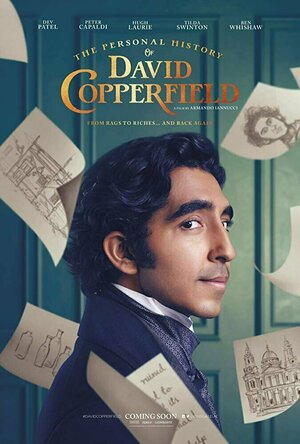
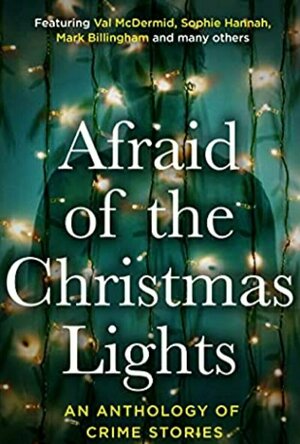
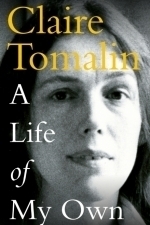
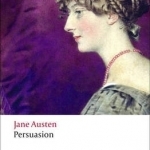
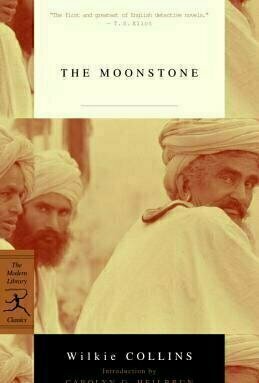
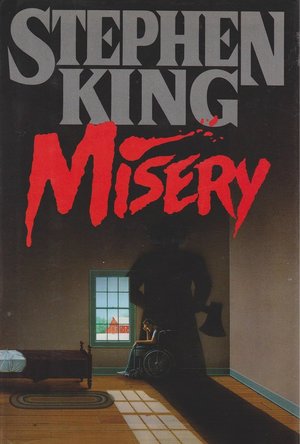
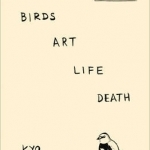
Angelicalynnn (21 KP) Jul 6, 2018
iamsara (130 KP) Jul 19, 2018